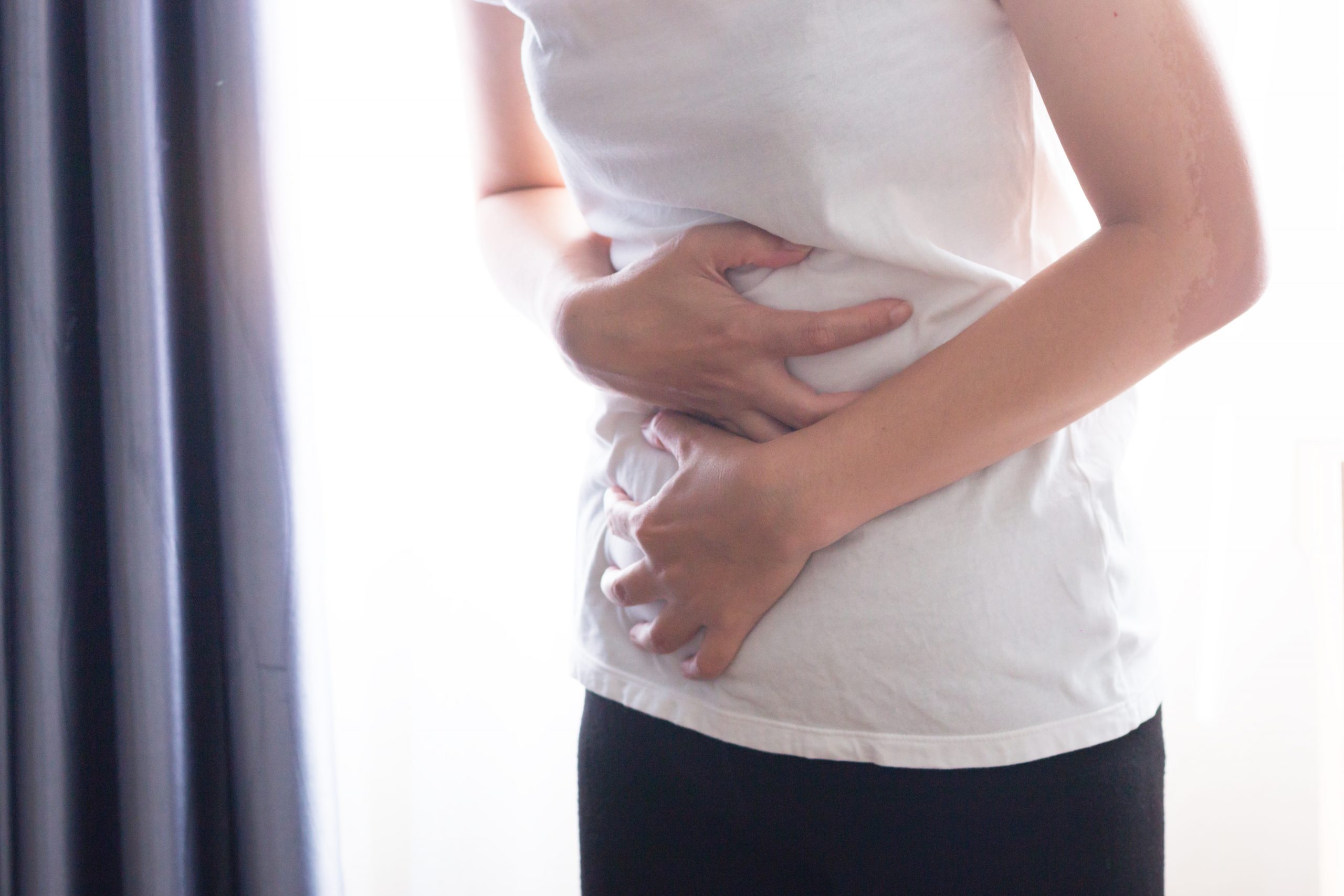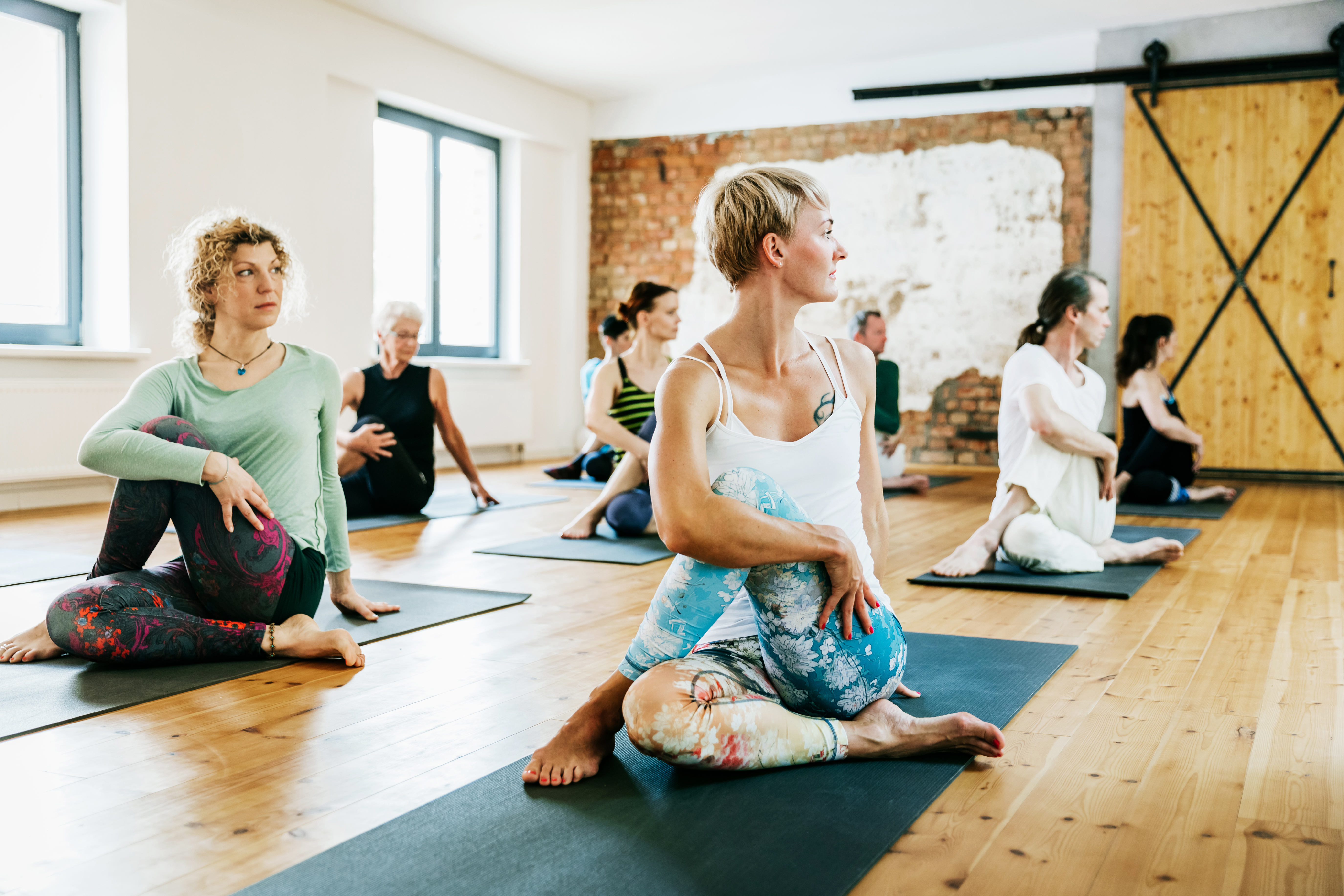What is Crohn's disease? The symptoms, causes and remedies you need to know
Everything you need to know about Crohn's disease


Here, we round up everything there is to know about the type of inflammatory bowel disease (IBD), including the Crohn's symptoms, causes and even some natural remedies you can try yourself at home, so you can be sure you're clued up.
The number of people suffering with inflammatory bowel disease (IBD), including Crohn's disease and ulcerative colitis is on the rise, according to new research.
The research presented at the United European Gastroenterology week in Barcelona October 2019, and carried out by Sandwell and West Birmingham hospitals and the University of Birmingham, found nearly 700,000 people in the UK are suffering from a type of inflammatory bowel disease (IBD), which is three times higher than previously reported.
Crohn’s disease and ulcerative colitis are the most common forms of IBD with an estimated 277,000 people suffering from Crohn's, and 409,000 cases of ulcerative colitis in the UK.
The new research revealed that the number of individuals suffering with Crohn's disease has risen by 83% and ulcerative colitis has increased by 55% between 2000 and 2017.
MORE: Sam Faiers shares tips on keeping Crohn’s disease under control
Commenting on the findings, Dominic King, of the University of Birmingham said, “Our study suggests that IBD prevalence is likely to rise substantially over the next decade. As there is currently no known cure, patients will often need complex and costly treatments throughout their lives."
GoodtoKnow Newsletter
Parenting advice, hot topics, best buys and family finance tips delivered straight to your inbox.
With the help of Dr Mark Cox consultant colorectal surgeon at Spire Little Aston Hospital in Sutton, we take an in-depth look at Crohn’s disease, its causes, its effect and the treatments available to sufferers.
What is Crohn's disease?
Crohn's disease is a long-term condition that causes inflammation of the lining of the digestive system.
Most commonly this happens in the last section of the small intestine (ileum) or the large intestine (colon). Inflammatory in the digestive tract can lead to abdominal pain, diarrhoea, fatigue, weight loss and malnutrition.
Dr Cox said, "The affected segments of the bowel will look red and swollen with ulcers which can lead to strictures (narrowed segments), but also fistulae, which are abnormal connections between two parts of the bowel, or between bowel and skin or other organs such as the bladder."
Crohn's disease can affect individuals of all ages, but generally symptoms occur in childhood and early adult years.
What are the symptoms of Crohn's disease?
Symptoms can vary from mild to severe, and will differ from person to person. The most common symptoms of Crohn's disease include:
- Diarrhoea
- Abdominal pain (stomach cramps)
- Tiredness and fatigue
- Unintended weight loss
- Loss of appetite
- Mouth ulcers
- Blood and mucus in your faeces (stools)
Sufferers can sometimes go for long periods without symptoms or with very mild symptoms (known as remission), which can then be followed by periods where Crohn's symptoms flare up and become troublesome.

How common is Crohn's disease?
It's estimated that Crohn's disease affects one in every 1000 people in the UK. It can be found in people of all ages, including children, although most cases first develop between the ages of 16 and 30 and a large number of cases develop between the ages of 60 and 80. It is also slightly more common in women.
What causes Crohn's disease?
While the exact causes of Crohn's disease are unknown, Dr Cox said, "Patients with Crohn's have abnormal regulation of the immune system that resides in the wall of the intestine. This is considered to be partly due to genetic susceptibility and, in part, to some unknown environmental factors."
MORE: Mum with Crohn’s disease praised for sharing graphic and honest selfies
He continued, "It is thought that there is no single causal factor in all patients, but several contributing factors in a genetically susceptible individual."
The exact causes of Crohn's are unknown, but a combination of factors may be responsible:
- Genetics: Certain genes inherited from your parents may increase your risk
- Immune system: A problem with your immune system may mean it begins to attack healthy bacteria in the gut
- Previous infection: Suffering from a previous infection could trigger an abnormal response from the immune system
- Smoking: Smokers can experience worse symptoms of Crohn's than those who don't smoke. Dr Cox said, "The most striking environmental trigger is smoking- smokers have a worse outcome than non-smokers with more operations and more flare-ups requiring steroids. Furthermore, stopping smoking has an extremely positive benefit on the patient’s outcome."
- Stress: Stress is know to be an aggravating factor. Dr Cox said,"It is generally considered that flare-ups may be associated with stressful life events such as bereavement, redundancy, etc. However stress is not the cause of the underlying condition. Furthermore, anxious patients may be more susceptible to the impact of stress and anxiety on their gut, leading to more symptoms in general."

I think I have symptoms of Crohn's disease, what now?
If you experience diarrhoea, abdominal pain and weight loss that lasts for several weeks or longer then go to the doctor and tell them you're concerned about Crohn's disease, especially if you're between the ages of 16-35 or have a family history of Irritable Bowel Syndrome.
The doctor may carry out blood tests, stool tests, an endoscopy (a thin flexible tube with a camera on the tip) through your mouth or through the back passage, or a capsule endoscopy which is a tiny capsule with a camera inside.
Treatment for Crohn's disease
Although there is no cure for Crohn's, treatments can help reduce or control your symptoms. The first treatment to reduce symptoms is usually steroid medication, and if this doesn't help medication to suppress the immune system and to reduce inflammation may be used. In some cases, however, patients may require surgery to remove the inflamed part of intestine.
The main treatments are:
- Medicines to reduce inflammation in the digestive system – usually steroid tablets
- Medicines to stop the inflammation coming back – either tablets or injections
- Surgery to remove a small part of the digestive system – sometimes this may be a better treatment option than medicines
Dr Cox said, "Some patients require surgery, either because the disease that is difficult to control with medical therapy or, in cases where there is obstruction due to strictures or other complications.
"About 50% of patients who undergo a bowel resection for Crohn’s disease will require a further operation within the following 10 years."
Is there a cure?
At the moment there is no cure for Crohn's, but diet changes, drugs and sometimes surgery can give long periods of relief from symptoms.
Dr Cox advises, "Even after medically-induced remission or following a surgical resection of any remaining diseased segment, there is the risk of relapse. We wouldn’t consider this condition as curable but there are some predictors that can guide us as to who will do well in the long term without a recurrence and who will be more likely to have further attacks."
5 natural remedies for Crohn's disease
You should always seek medical treatment if you're suffering from Crohn's, but there are a few natural remedies, which could help compliment treatment and ease the discomfort and pain associated with the symptoms.
Probiotics
Probiotics contain good bacteria to help support gastrointestinal health and maintain balance in the digestive system, which could help reduce the symptoms of Crohn's. You could try probiotics in supplement form, or in yogurts containing live and cultures - but remember to always check with your doctor first.
Massage
It's not just an excuse to visit the spa, massage has been proven to reduce stress and pain throughout the body, and around 30% of Crohn's sufferers have reported using massage as a natural remedy, according to a study in the Gut journal in 2012. While you should avoid having a massage during a flare up, neck, back and shoulder massages during remission can help to relieve tension and stress, which can aggravate Crohn's.

Yoga
Alexandra Rainesford, who created a Crohn's disease management plan after being diagnosed with the disease in 2013, says she uses hot vinyasa yoga to ease her symptoms.
'Almost immediately, yoga helped ease the anxiety that's often a side effect of Crohn's disease, at least for me' she says.'I love twists, because they quite literally wring you out, and inversions, partially because they're just fun, and because they reset your entire system.' Plus it's said that the work out can help you to relax and manage stress, too!
Acupuncture
It's an ancient technique that involves thin needles being inserted into specific points in your body, which is said to help stimulate your brain to release endorphins. It's been suggested that acupuncture can help ease aches and pains that are associated with Crohn's and helps to relieve stress.
Fish Oil
Fish oil is packed with anti-inflammatory omega-3 fatty acids that could help to reduce the inflammation associated with Crohn's disease. But be careful - high doses could increase bleeding, so it's always best to check with your doctor before you start taking a supplement.

Sibelle Mehmet is a Junior Digital Writer at Goodto.com. She joined the team in April 2019 and was her first job since completing a MA in Magazine Journalism at City, the University of London in the summer of 2019. Sibelle previously interned at a number of national titles including OK!, Heat, Closer, Mother & Baby, and The Times Newspaper magazine. She's written extensively about the latest celebrity, showbiz, and royal news.